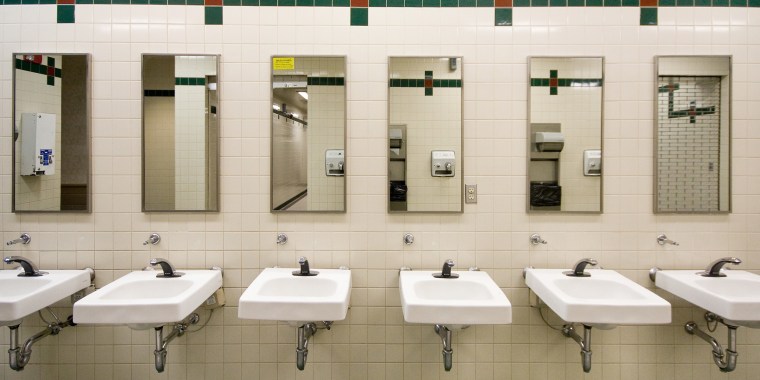As the country begins to reopen during the coronavirus pandemic, many are worried about what public spaces are safe to spend time in.
Anyone spending a lot of time out of the house will encounter one risk: A public bathroom. Many public restrooms are open across the country, but some are hesitant to use them.
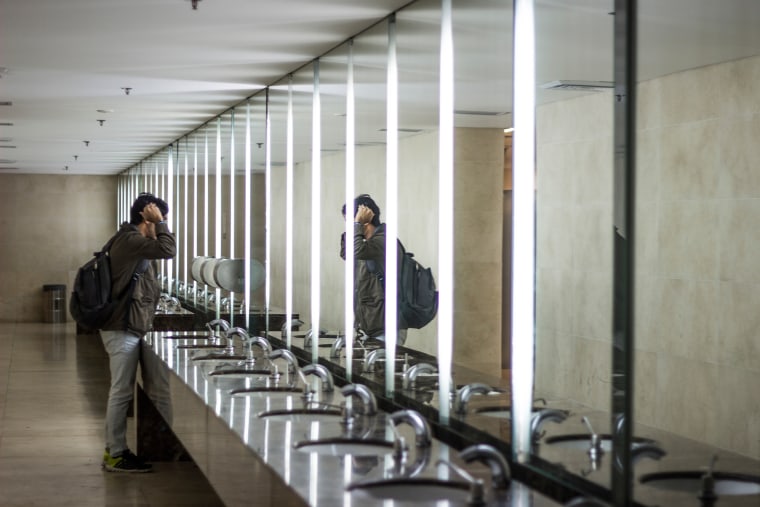
TODAY spoke to experts to find out if public bathrooms are safe to use, what the biggest risks are, and how you can manage the situation with young children who may not understand social distancing or other precautions.
Should you use a public restroom?
According to Peter Pitts, the president and co-founder of the Center for Medicine in the Public Interest in New York, the benefits of having public bathrooms freely available outweighs any risk.
"When it comes to the coronavirus as with life, it's all about risk and benefit," he said. "The benefit of having access to public restrooms is obvious. I don't have to draw a picture on that one. The risk is 'Can I use a public restroom safely without a overwhelming risk of contracting COVID-19? ' And the answer is absolutely yes."
However, a recent study flagged an additional risk in bathrooms that you may not encounter elsewhere: aerosol plume — when you flush a toilet, the motion can cause droplets and particles, including coronavirus droplets, minute amounts of fecal matter and other particles, to go several feet into the air and linger there. How long those particles stay in a bathroom, how high they go and where they land will vary based on the specific design and ventilation a restroom has.
"These aerosol plumes are not just for COVID, they're for like every other thing," said Shan Soe-Lin, a lecturer in global affairs at Yale University in New Haven, Connecticut and trained immunologist. "There's been a lot of research that has found viral particles in urine and poop. It's not clear that those are infectious, but I think you should assume for now that they are, and you probably don't want to be inhaling them."
The best way to avoid these aerosol plumes, according to Pitts and Soe-Lin, is to simply close the lid of the toilet before flushing. If the toilet does not have a lid, both recommended facing away from the toilet while flushing and exiting the stall as quickly as possible.
Should you try to avoid public restroom lines?
Soe-Lin warned that the real risk in a public bathroom doesn't come from touching surfaces or even encountering aerosolized particles — it's from being in close proximity to other people.
"Your biggest risk is probably standing really close in line to somebody and not being social distanced while waiting," she said. "That's followed by the aerosol plumes, followed by touching something and then touching your face."
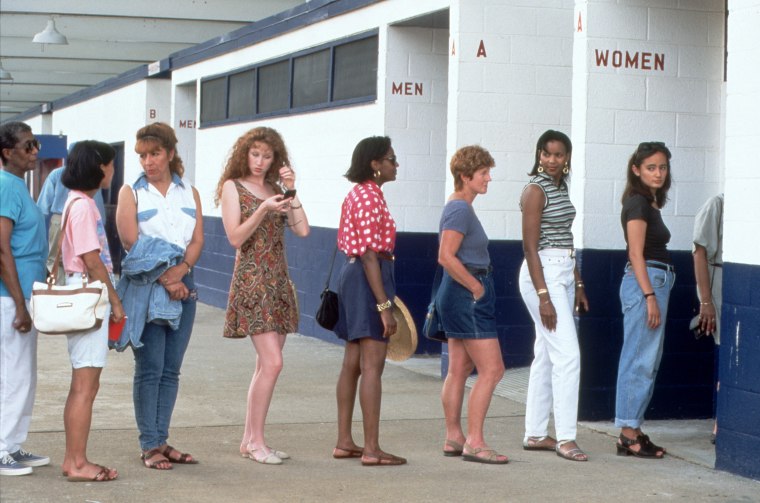
Pitts said that it can help to avoid going into a crowded restroom.
"Like anything else, common sense should be your first indicator," he said. "The rule the rule of thumb remains the same. If a public restroom is jam packed with people, obviously the risk is higher. Unless you're going to a bar that's jam-packed with people and the restrooms are jam-packed with people, I think that you're generally pretty safe."
If possible, try to find a bathroom that is less crowded or has a shorter line.
"The evidence is very clear that the way that you are most likely to contact the COVID-19 is through close physical proximity with people, not with porcelain," Pitts continued.
If you have to use a public restroom, what precautions should you take?
The precautions for using a public restroom during the coronavirus pandemic are fairly similar to the precautions you would normally take.
"Good bathroom etiquette, whether it's the bathroom in your home or a bathroom in the airport, is wash your hands thoroughly with soap and water and try not to touch the door on your way in or out," Pitts said. "There's nothing new here. Good behavior for COVID has been good behavior pre-COVID and will be good public health behavior post-COVID."
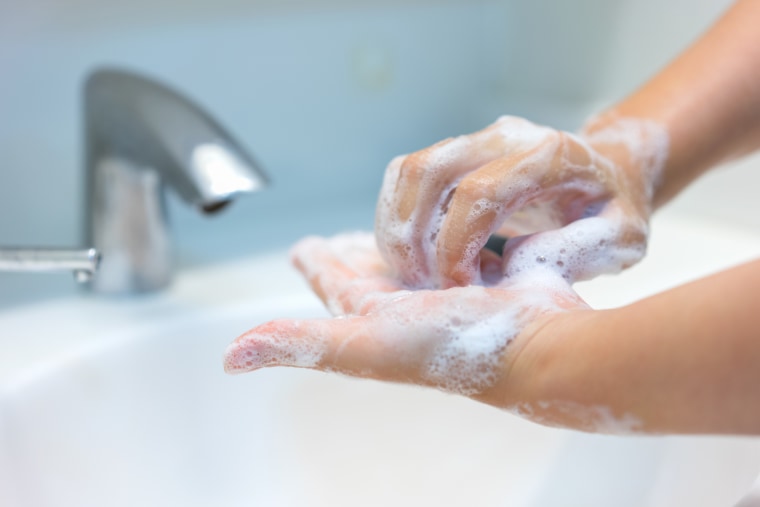
"I would still do all the things that people should be doing anyway, which is like not touching any surfaces, washing your hands as quickly, but thoroughly, as possible using paper towels to dry and using a paper towel to open a door," said Soe-Lin. "I would want to touch the least amount of stuff."
Both Soe-Lin and Pitts said that wearing masks in the restroom would help slow the spread of the virus, and also help people generally be more sanitary.
"I can't think of a better example as to the value of masks than using a public restroom," said Pitts.
Soe-Lin said that one thing to avoid would be automatic hand dryers, where the air being used to dry your hands can spread particles and droplets around the bathroom.
"Hand dryers probably shouldn't be used," she said.
How can you keep small children safe?
Adults and older children might be able to grasp the concepts of social distancing, and understand the importance of not touching surfaces, but young children may have more trouble keeping their hands to themselves. Dr. Candice Jones, a Florida-based pediatrician, said that the best thing parents can do with young children is model appropriate behavior for them to follow.
"I really, really think it's really important to talk them through these things at home and demonstrate and show them the process of going into a public bathroom," Jones said. "... Kids pick up as much from watching their parents and parents showing them what to do."
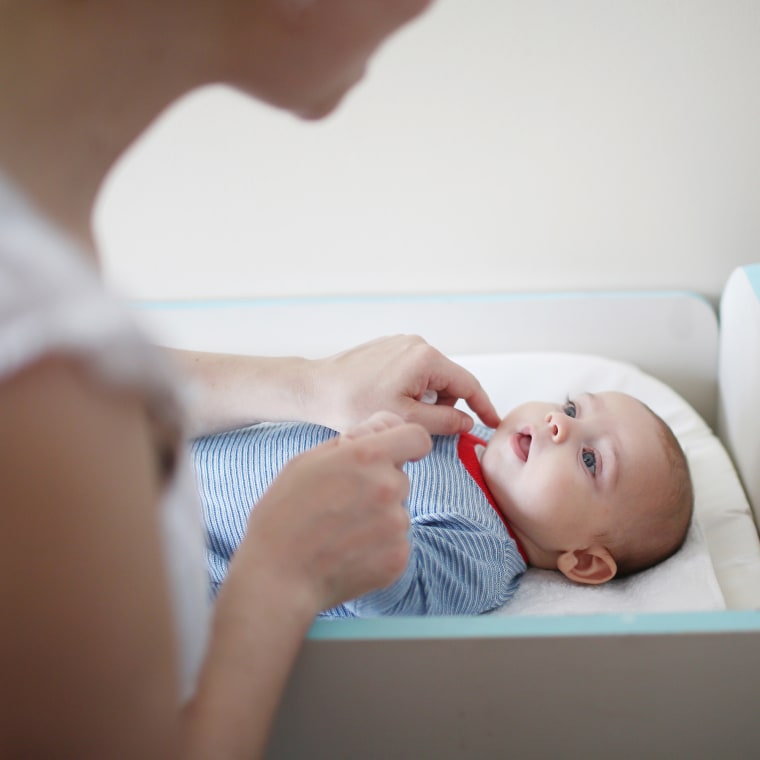
For young children, like toddlers, who may not listen or try to touch everything, you may want to avoid public restrooms if possible. If you do need to use one, make sure that you have the necessary supplies, like a mask and hand sanitizer. If you're using a changing table, bring disinfecting wipes to clean the surface before use. However, don't restrict bathroom usage if it's an emergency.
"We don't want them to be holding their urine for long periods of time," Jones said. "That can be unhealthy and lead to problems so definitely just have everything you need and be prepared to go in and out."
